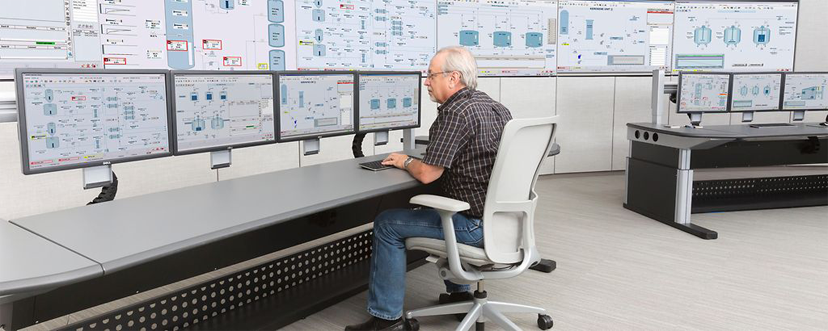Legal Notice
All information products included in http://ics-cert.us-cert.gov are provided “as is” for informational purposes only. The Department of Homeland Security (DHS) does not provide any warranties of any kind regarding any information contained within. DHS does not endorse any commercial product or service, referenced in this product or otherwise. Further dissemination of this product is governed by the Traffic Light Protocol (TLP) marking in the header. For more information about TLP, see http://www.us-cert.gov/tlp/.
1. EXECUTIVE SUMMARY
-
CVSS v3 8.8
- ATTENTION: Low skill level to exploit
- Vendor: Emerson
- Equipment: DeltaV Distributed Control System Workstations
- Vulnerability: Authentication Bypass
2. RISK EVALUATION
Successful exploitation of this vulnerability could allow an attacker to shut down a service, resulting in a denial of service.
3. TECHNICAL DETAILS
3.1 AFFECTED PRODUCTS
Emerson reports the vulnerability affects the following DeltaV Distributed Control System Workstations products:
- DeltaV DCS Versions 11.3.1, 11.3.2, 12.3.1, 13.3.1, 14.3, R5.1, R6 and prior.
3.2 VULNERABILITY OVERVIEW
3.2.1 AUTHENTICATION BYPASS CWE-307
A specially crafted script could bypass the authentication of a maintenance port of a service, which may allow an attacker to cause a denial of service.
CVE-2018-19021 has been assigned to this vulnerability. A CVSS v3 base score of 8.8 has been calculated; the CVSS vector string is (AV:A/AC:L/PR:N/UI:N/S:C/C:L/I:L/A:H).
3.3 BACKGROUND
- CRITICAL INFRASTRUCTURE SECTORS: Chemical, Critical Manufacturing, Energy
- COUNTRIES/AREAS DEPLOYED: Worldwide
- COMPANY HEADQUARTERS LOCATION: United States
3.4 RESEARCHER
Alexander Nochvay of Kaspersky Lab reported this vulnerability to Emerson.
4. MITIGATIONS
Emerson recommends users to patch affected products listed below:
- DeltaV DCS Versions 11.3.1, 11.3.2, 12.3.1, 13.3.1, 14.3, R5.1, and R6
Software patches are available to users with access to the Emerson Guardian Support Portal at
https://guardian.emersonprocess.com/
For more information, please refer to the article for this vulnerability on the Emerson website.
To limit exposure to these and other vulnerabilities, Emerson recommends that DeltaV systems and related components be deployed and configured as described in the DeltaV Security Manual which can be found in Emerson’s Guardian Support Portal.
NCCIC recommends users take defensive measures to minimize the risk of exploitation of this vulnerability. Specifically, users should:
- Minimize network exposure for all control system devices and/or systems, and ensure that they are not accessible from the Internet.
- Locate control system networks and remote devices behind firewalls, and isolate them from the business network.
- When remote access is required, use secure methods, such as Virtual Private Networks (VPNs), recognizing that VPNs may have vulnerabilities and should be updated to the most current version available. Also recognize that VPN is only as secure as the connected devices.
NCCIC reminds organizations to perform proper impact analysis and risk assessment prior to deploying defensive measures.
NCCIC also provides a section for control systems security recommended practices on the ICS-CERT web page. Several recommended practices are available for reading and download, including Improving Industrial Control Systems Cybersecurity with Defense-in-Depth Strategies.
Additional mitigation guidance and recommended practices are publicly available on the ICS-CERT website in the Technical Information Paper, ICS-TIP-12-146-01B–Targeted Cyber Intrusion Detection and Mitigation Strategies.
Organizations observing any suspected malicious activity should follow their established internal procedures and report their findings to NCCIC for tracking and correlation against other incidents.
No known public exploits specifically target this vulnerability. This vulnerability is exploitable from an adjacent network.
Source:
https://ics-cert.us-cert.gov/advisories/ICSA-19-010-01
